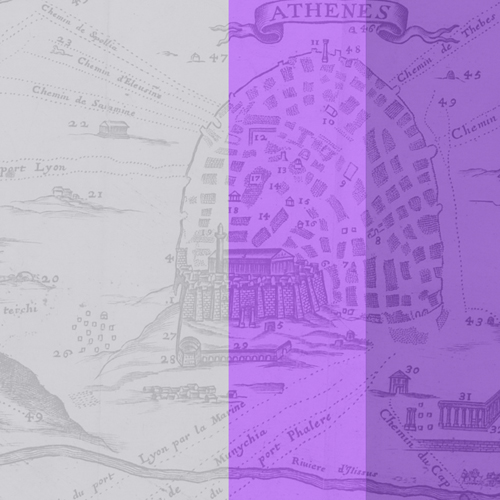
Yavuz Sezer Memorial Talks
City of Sages: Ottomanizing Early Modern Athens
12 December 2024 / 18:00

To Syriac, Armenian, Persian, Arabic, and Ottoman writers, Athens was known as the ‘City of Sages.’ Thanks largely to the Greco-Arabic translation movement, a group of ancient sages had been accorded citizen-rights in the Islamicate world, and the city most acclaimed for its ancient schools achieved transhistorical renown. This lecture asks how the name is implicated in pre-nineteenth-century interpretations of Athenian architecture that have been mainly overshadowed or dismissed. This question, in turn, exposes a major historiographical problem: namely, how the study of Athens has until recently been framed in terms of ‘ancient and modern,’ conveniently skipping over the medieval and early modern, that is, Christian and Muslim, phases of living with, and creating meaning from, the ancient city’s impressive architectural legacy. It is argued that attention to Ottoman interpretations from before the nineteenth century introduces neglected descriptive and analytical approaches into current discussions of both Ottoman responses to ‘antiquity’ and Greek responses to their own culturally complex history and its re-presentation today.
The talk at ANAMED Auditorium is free and does not require registration.
The event will be in English, with simultaneous translation into Turkish.
About Elizabeth Key Fowden
Elizabeth Key Fowden (Affiliated Researcher, Faculty of Classics, University of Cambridge) is a cultural historian interested particularly in the places where Hellenism and Islam meet. Her books include The Barbarian Plain: Saint Sergius between Rome and Iran, Studies on Hellenism, Christianity and the Umayyads, and Contextualizing Late Greek Philosophy (with Garth Fowden), and the co-edited volume Cities as Palimpsests? Responses to Antiquity in Eastern Mediterranean Urbanism. Supported by the Gerda Henkel Foundation and the ERC, her current book project The Parthenon Mosque explores Ottoman engagement with material culture in Athens.
Yavuz Sezer Memorial Talks
This series aims to commemorate the intellectual legacy of our late friend and colleague Yavuz Sezer. Yavuz Sezer was a passionate historian whose work on Istanbul’s libraries in the eighteenth century stood at the intersection of architectural history, urban history, and book history. His research was a testament to his love of Ottoman history and architecture. Furthermore, he brought Ottoman libraries to life with his keen eye on urban history, exploring the myriad ways in which Istanbulites integrated libraries into their social world and furnished them with cultural meaning. He further saw the history of libraries as a window onto the intellectual concerns and interests of the Ottoman reading public. Yavuz Sezer Memorial Talks, co-organized by the Istanbul Research Institute, Koç University’s Research Center for Anatolian Civilizations (ANAMED), Boğaziçi University Department of History, and Yavuz Sezer’s Friends, to carry forward Yavuz Sezer’s multidimensional approach to urban history which brought together spaces, people, and ideas. Each year, we host a historian whose work makes an important contribution to the history of architecture, urban studies, and/or book culture. Our aim is to facilitate conversations across these fields that will realize Dr. Sezer’s vision of a multifaceted cultural history that brought together the material and the social/intellectual.
About Yavuz Sezer
Yavuz Sezer was born in Bakırköy, Istanbul on September 13, 1979. After spending his early years in Kocamustafapaşa, he graduated from the Vefa High School in 1997. He obtained his BA and MA degrees at the History Department of Boğaziçi University. He then began his doctoral studies at the History, Theory and Criticism of Architecture and Art Group at MIT (Massachusetts Institute of Technology). He completed his PhD. program in 2016, with a successful dissertation entitled “The Architecture of Bibliophilia: Eighteenth-Century Ottoman Libraries.” This dissertation is currently being prepared for publication as a scholarly monograph. Yavuz Sezer taught at the Faculty of Architecture, Bilgi University from 2013 until 2021. During these years, he taught a wide variety of courses in urban, cultural, and architectural history and inspired thousands of students. Sezer’s interests spanned a broad range of subjects, primarily architectural, intellectual, urban history, and history of the book. His untimely passing on March 24, 2021, was a huge loss for his family, friends, colleagues, and students as well as for the field of Ottoman history.

